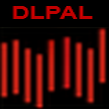
Three New Insights from Academic Research Related to Equity Momentum Strategy
What are the main insights?
– The momentum spread (the difference of the formation-period recent 6-month returns between winners and losers) negatively predicts future momentum profit in the long-term (but not in the following month), the negative predictability is mainly driven by the old momentum spread (old momentum stocks are based on whether a stock has been identified as a momentum stock for more than three months)
– The momentum profits based on total stock returns can be decomposed into three components: a long-term average alpha component that reverses, a stock beta component that accounts for the dynamic market exposure (and momentum crash risk), and a residual return component that drives the momentum effect (and subsumes total-return momentum)
– The profitability and the optimal combination of ranking and holding periods of momentum strategies for a sample of Core and Peripheral European equity markets the profitability vary across markets
1/
Author: Guo
Title: Decomposing Momentum Spread
Link: https://papers.ssrn.com/sol3/papers.cfm?abstract_id=3386828
Abstract:
Since momentum arbitrage activity, buying winners and selling losers, effectively enlarges the return spread between these two groups, I connect the momentum spread to future momentum performance. I find that the momentum spread (the difference of the formation-period recent 6-month returns between winners and losers) negatively predicts future momentum profit in the long-term, but not in the following month. I further decompose the momentum spread into the spreads of old or young momentum stocks based on whether a stock has been identified as a momentum stock for more than three months. I show that the negative predictability is mainly driven by the old momentum spread. For the top 20% of the sample period associated with the highest values of old momentum spread, the momentum reversals happen sooner (only six months after formation) and stronger (more than 120 basis points per month from month 7 to month 24 after formation), relative to negligible momentum reversals observed following the bottom 20% period with low old momentum spread. As these old momentum stocks are more likely to be exploited by arbitrageurs, these findings suggest that momentum is amplified by arbitrage activity and excessive arbitrage destabilizes the asset prices and generates strong reversals.
2/
Authors: Hammed, Wu
Title: Decomposing Momentum
Link: https://papers.ssrn.com/sol3/papers.cfm?abstract_id=3401656
Abstract:
We decompose the momentum profits based on total stock returns into three components: a long-term average alpha component that reverses, a stock beta component that accounts for the dynamic market exposure (and momentum crash risk), and a residual return component that drives the momentum effect (and subsumes total-return momentum). The variation in total-return momentum across market states and business cycles is attributable to the time-varying performance of the long-term reversal component, while residual-return momentum is invariant over time. Hence, we establish a dichotomy between intermediate-term momentum and long-term reversal: stocks that experience momentum are different from the ones that reverse.
3/
Authors: Slabchenko
Title: Are Momentum Strategies Profitable? Recent Evidence from European Markets
Link: https://papers.ssrn.com/sol3/papers.cfm?abstract_id=3397011
Abstract:
This paper examines the profitability of momentum strategies for a sample of Core and Peripheral European equity markets. More specifically, a large number of strategies with different combinations of ranking and holding periods are empirically evaluated for the period between December 1989 to January 2018 for the UK, Germany, French, Sweden, the Netherlands, Italy, Spain, Greece, and Portugal. The results indicate that both the profitability and the optimal combination of ranking and holding periods of momentum strategies vary across markets.
Are you looking for more strategies to read about? Sign up for our newsletter or visit our Blog or Screener.
Do you want to learn more about Quantpedia Premium service? Check how Quantpedia works, our mission and Premium pricing offer.
Do you want to learn more about Quantpedia Pro service? Check its description, watch videos, review reporting capabilities and visit our pricing offer.
Are you looking for historical data or backtesting platforms? Check our list of Algo Trading Discounts.
Would you like free access to our services? Then, open an account with Lightspeed and enjoy one year of Quantpedia Premium at no cost.
Or follow us on:
Facebook Group, Facebook Page, Twitter, Linkedin, Medium or Youtube
Share onLinkedInTwitterFacebookRefer to a friend

















